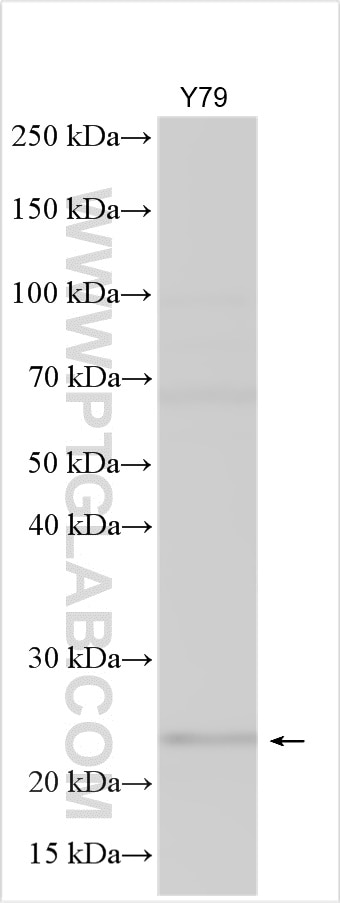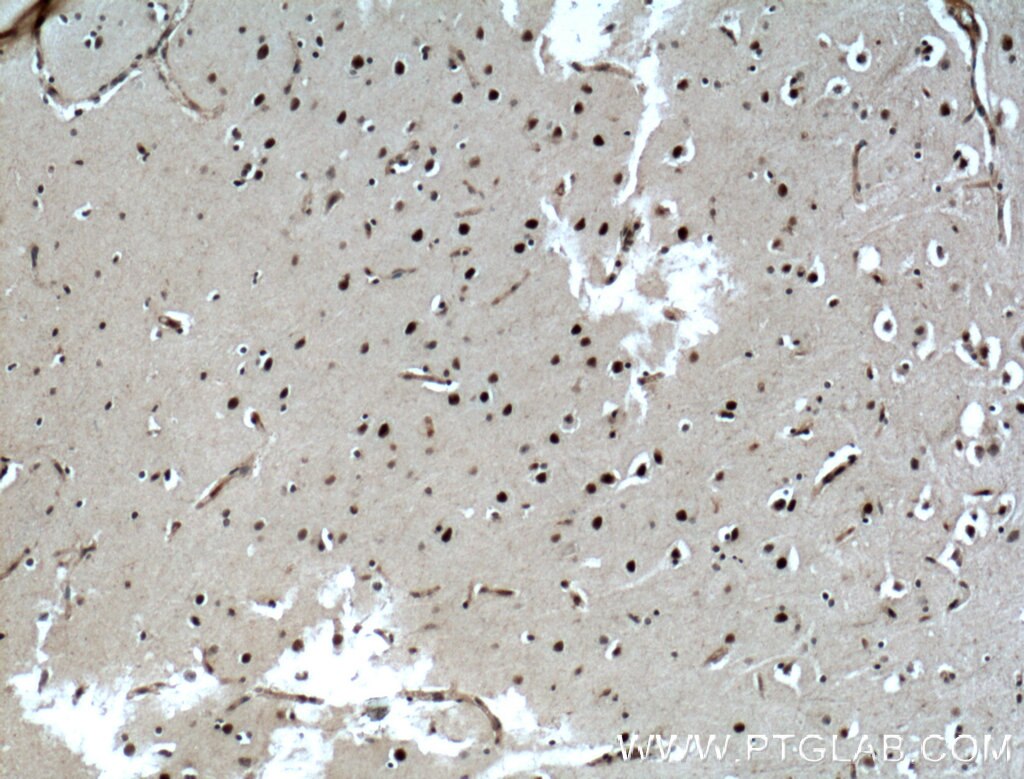Validation Data Gallery
Tested Applications
| Positive WB detected in | Y79 cells |
| Positive IHC detected in | human brain tissue Note: suggested antigen retrieval with TE buffer pH 9.0; (*) Alternatively, antigen retrieval may be performed with citrate buffer pH 6.0 |
Recommended dilution
| Application | Dilution |
|---|---|
| Western Blot (WB) | WB : 1:500-1:1000 |
| Immunohistochemistry (IHC) | IHC : 1:50-1:500 |
| It is recommended that this reagent should be titrated in each testing system to obtain optimal results. | |
| Sample-dependent, Check data in validation data gallery. | |
Published Applications
| IHC | See 2 publications below |
Product Information
23751-1-AP targets ASCL1 in WB, IHC, ELISA applications and shows reactivity with human samples.
| Tested Reactivity | human |
| Cited Reactivity | human |
| Host / Isotype | Rabbit / IgG |
| Class | Polyclonal |
| Type | Antibody |
| Immunogen | ASCL1 fusion protein Ag19360 相同性解析による交差性が予測される生物種 |
| Full Name | achaete-scute complex homolog 1 (Drosophila) |
| Calculated molecular weight | 25 kDa |
| Observed molecular weight | 25 kDa |
| GenBank accession number | BC003134 |
| Gene Symbol | ASCL1 |
| Gene ID (NCBI) | 429 |
| RRID | AB_2935459 |
| Conjugate | Unconjugated |
| Form | Liquid |
| Purification Method | Antigen Affinity purified |
| UNIPROT ID | P50553 |
| Storage Buffer | PBS with 0.02% sodium azide and 50% glycerol{{ptg:BufferTemp}}7.3 |
| Storage Conditions | Store at -20°C. Stable for one year after shipment. Aliquoting is unnecessary for -20oC storage. |
Background Information
This gene encodes a member of the basic helix-loop-helix (BHLH) family of transcription factors. The protein activates transcription by binding to the E box (5'-CANNTG-3'). Dimerization with other BHLH proteins is required for efficient DNA binding. This protein plays a role in neuronal commitment and differentiation and in the generation of olfactory and autonomic neurons. Mutations in this gene may contribute to the congenital central hypoventilation syndrome (CCHS) phenotype in rare cases.
Protocols
| Product Specific Protocols | |
|---|---|
| WB protocol for ASCL1 antibody 23751-1-AP | Download protocol |
| IHC protocol for ASCL1 antibody 23751-1-AP | Download protocol |
| Standard Protocols | |
|---|---|
| Click here to view our Standard Protocols |
Publications
| Species | Application | Title |
|---|---|---|
Pathol Res Pract POU2F3-positive small cell carcinoma of the bladder: A clinicopathologic analysis of 4 cases and literature review | ||
Lung Cancer The molecular subtypes of small cell lung cancer defined by key transcription factors and their clinical significance |

